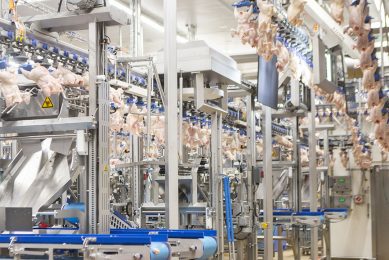AFIA fears job losses with new GIPSA rules
US Department of Agriculture’s proposed rules on how the meat processing industry contracts with farmers and ranchers by far exceeds the intent of Congress, the American Feed Industry Association (AFIA) said in comments filed on the Grain Inspection Packers & Stockyards Act (GIPSA).
AFIA submitted comments on behalf of its commercial livestock and poultry members, whose unique contractual relationships with producer customers will be subject to the proposed Packers and Stockyards Act (PSA).
The proposed changes will broaden the scope of GIPSA authority, which could lead to ramifications in the relationships between companies (integrators) and independent growers.
Reduced efficiency
“The most likely economic effects of this change would be a reduction of performance-based competition among growers, which could lead to growers not reinvesting in the industry, a reduced rate of capital investment, a reduced rate of efficiency, and higher animal prices,” explained AFIA president Joel Newman.
Newman went on to say that the new rules would force more producers into the volatile cash market where it will be more difficult to secure financing. “Because many producers cannot survive in an unstable market, many rural jobs face elimination, concentrating power in the hands of packers.”
Inappropriate intervention
The AFIA comments said that USDA appears to have moved away from the congressional intent of the 2008 Farm Bill, where AFIA supported the position that USDA intervention between producer and processor business relationships was inappropriate in a free market system, unless there were clearly demonstrated violations.
GIPSA not only proposes to adopt views rejected by the federal appellate courts, but several proposed components recently faced congressional rejection, AFIA wrote in the comments.
In addition, the proposed rules have no meaningful economic or cost/benefit analysis of their impact on the industry, producers or consumers.
AFIA strongly recommends GIPSA re-evaluate the proposed rules that will have an immediate impact on the livestock and poultry production industry. Discussions with all affected stakeholders should occur before issuing future rules.
In addition, AFIA strongly recommends a thorough and comprehensive practical, legal and economic analysis of the costs and benefits of such rules.













